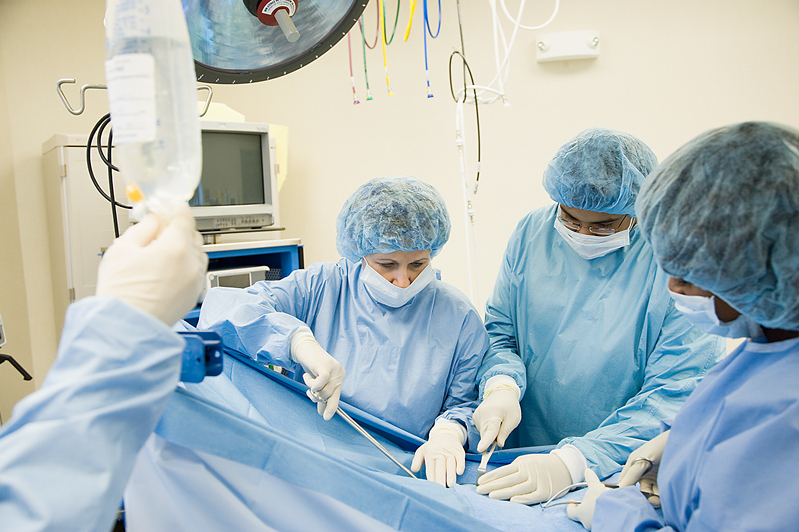
Patients may be more likely to harm themselves or attempt suicide after weight-loss surgery, a Canadian study suggests.
Researchers followed about 8,800 patients for three years before and after they had surgery to lose weight. Most of them had a common type of bariatric surgery known as gastric bypass, which helps patients shed excess pounds by reducing stomach capacity from about three pints to the size of a shot glass.
During the first three years after surgery, 111 patients received emergency care for self-inflicted injuries, or roughly 1 percent of people in the study. While small, the risk of these emergencies was 54 percent higher after surgery than it was before.
Most of these incidents of self-inflicted harm happened one to three years after bariatric surgeries, suggesting that patients may need more long-term behavioral healthcare than they're getting, said Dr. Amir Ghaferi, author of an editorial accompanying the study in JAMA Surgery.
"Unfortunately, long term postoperative follow-up for bariatric patients is not ideal," Ghaferi, a bariatric surgery specialist at the University of Michigan and the Ann Arbor Veterans Administration Healthcare System.
"This study should not dissuade patients with mental health problems from seeking bariatric surgery," Ghaferi added. Instead, it should encourage healthcare providers to target these patients for improved follow-up care, he said.
Surgical weight loss has gained traction in recent years as a growing number of extremely obese patients turn to this option after failing to achieve significant weight loss through diet, exercise or medication. Like all surgery, it isn't risk free, and bariatric operations in particular carry a risk of malnutrition.
These procedures also come with a risk of overdosing on alcohol or drugs because patients' smaller stomachs and intestines may no longer be able to tolerate the same amounts of libations or medications that they could before surgery.
In the current study, almost three in four of the self-inflicted injuries were identified as intentional drug overdoses.
Most of the time, the patients who harmed themselves had been diagnosed with a mental health disorder at some point in the five years preceding surgery.
The risk wasn't the same for all of the patients in the study, however. People over 35 were 76 percent more likely to be treated for a self-inflicted emergency after surgery than before, and the risk was more than doubled for low-income patients.
Rural patients had more than a six-fold greater risk of receiving emergency care for self-inflicted harm after their weight-loss operations, the study found.
One limitation of the study, however, is its use of billing data to identify drug overdoses, which might not be an accurate indicator of whether the act was intentional or accidental, the authors acknowledge.
Even so, the findings add to a growing body of evidence linking bariatric surgery to an increased risk of suicide, lead author Junaid Bhatti, a researcher at the Institute for Clinical Evaluative Sciences and the Sunnybrook Research Institute in Toronto.
Bariatric surgery patients typically go through psychological screenings before their operations and have intense follow-up care for up to a year afterwards, Bhatti said by email.
"These findings suggest that more effort may be needed to improve access to mental health care services in these patients should they need them, and perhaps some screening in the second year and onwards," Bhatti said.







